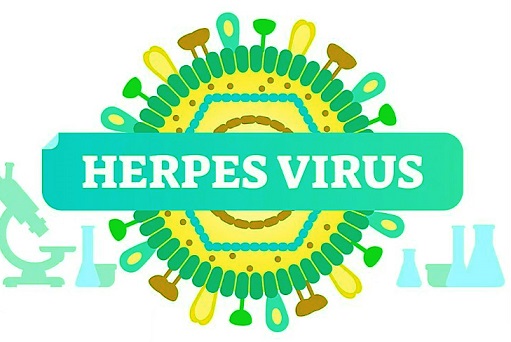Nikhil Prasad Fact checked by:Thailand Medical News Team Oct 21, 2024 1 year, 1 month, 4 weeks, 2 days, 1 hour, 20 minutes ago
Medical News: Researchers from the Mina and Everard Goodman Faculty of Life Sciences and the Advanced Materials and Nanotechnology Institute at Bar-Ilan University in Israel have conducted a groundbreaking study that sheds light on the UL24 protein family, a key group of proteins found across the herpesvirus family. This discovery may open new avenues for treatments targeting herpesvirus-related diseases, ranging from cold sores to more severe conditions like herpes encephalitis and certain cancers.
 New Insights into Herpesvirus Protein Family Could Lead to New Treatments
What is UL24 and Why Is It Important?
New Insights into Herpesvirus Protein Family Could Lead to New Treatments
What is UL24 and Why Is It Important?
Herpesviruses, a family that includes more than 100 viruses affecting both humans and animals, have a unique characteristic: once someone is infected, the virus never fully leaves the body, often remaining dormant and reactivating later in life. This ability to stay hidden and come back to cause illness is a challenge in managing and treating herpesvirus infections.
The UL24 protein family, the focus of this research, is conserved across all herpesviruses. This means that it is present in all known herpesvirus species, making it a crucial target for understanding how these viruses replicate and cause disease. The UL24 proteins play vital roles in viral replication, interactions with the host’s cells, and the virus’s ability to evade the immune system.
This
Medical News report dives into the findings of the study, revealing key aspects of the UL24 proteins and why they matter for future medical advancements.
A Close Look at the Study
The research team conducted a comparative review of the UL24 protein family, looking at its genetic conservation, how it is expressed, and its localization within cells during infection. They found that UL24 proteins exhibit consistent structural features across herpesviruses, including a signature motif called PD-(D/E)XK, which is believed to provide an active site for endonuclease activity.
Endonucleases are enzymes that can cut DNA, suggesting that UL24 proteins may play a role in how the virus manipulates the host’s DNA.
The study also highlighted that UL24 proteins are expressed with "late kinetics," meaning they appear late in the viral infection cycle, a crucial point when the virus is assembling new copies of itself. However, the exact functions of these proteins during infection are not yet fully understood, and further research is needed to clarify their roles.
Key Findings from the Study
One of the key findings of the study was that UL24 proteins are involved in several critical processes during herpesvirus infection. These proteins localize to the nucleus of infected cells, particularly the nucleolus, which is a hub for processing and assembling ribosomes, the cell's protein-making machinery. UL24 proteins may interfere with the normal function of the nucleolus, potentially disrupting the host cell’s ability to respond to the
viral infection.
In addition to their role in the nucleus, UL24 proteins have been shown to influence the distribution of viral proteins involved in viral entry and fusion with host cells. In laboratory experiments, herpesvirus strains that lacked functional UL24 proteins showed altered viral growth and replication patterns, producing smaller plaques, which are signs of virus-induced damage to cells.
The study also pointed out that these proteins could play a role in how the virus avoids detection by the immune system. In particular, herpesviruses lacking UL24 proteins had higher levels of immune signaling molecules, suggesting that UL24 may help the virus evade the host’s immune response.
Potential for New Treatments
One of the most exciting implications of this research is the potential for developing new antiviral treatments targeting the UL24 protein family. By inhibiting UL24 function, it may be possible to weaken the virus’s ability to replicate and evade the immune system, making it easier to control and treat herpesvirus infections.
This is particularly important for viruses like Epstein-Barr virus (EBV) and Kaposi’s sarcoma-associated herpesvirus (KSHV), both of which are linked to cancers. If drugs can be developed to target UL24 in these viruses, they could become an essential tool in preventing or treating virus-related cancers.
The Study’s Broader Implications
The researchers also explored the evolutionary origins of the UL24 protein family, suggesting that these proteins have been conserved for millions of years. This level of conservation across such a diverse group of viruses highlights the importance of UL24 in the herpesvirus life cycle. By studying this protein family, scientists hope to gain insights into not only how herpesviruses operate but also how other viruses with similar mechanisms might be tackled.
In conclusion, the research team’s findings bring us one step closer to understanding the complex biology of herpesviruses. Their work suggests that targeting UL24 proteins could be a viable strategy for developing new therapies against a range of diseases caused by these viruses. The ongoing study of these proteins will undoubtedly continue to reveal more about how they function and how we can exploit this knowledge to combat viral infections.
Final Thoughts
The research team from Bar-Ilan University has provided a detailed look into the structure and function of the UL24 protein family, a key component of herpesvirus biology. The study paves the way for future research that could lead to new treatments for herpesvirus infections, which remain a significant health concern worldwide.
The study findings were published in the peer-reviewed International Journal of Molecular Sciences.
https://www.mdpi.com/1422-0067/25/20/11268
For the latest on Herpesviruses, keep on logging to Thailand
Medical News.
Read Also:
https://www.thailandmedical.news/news/italian-study-finds-that-jujube-fruit-extracts-show-promising-potential-against-herpes-virus
https://www.thailandmedical.news/news/breakthrough-in-anti-herpes-treatment-thailand-medical-researchers-at-chiang-mai-university-discover-potent-algae-extract
